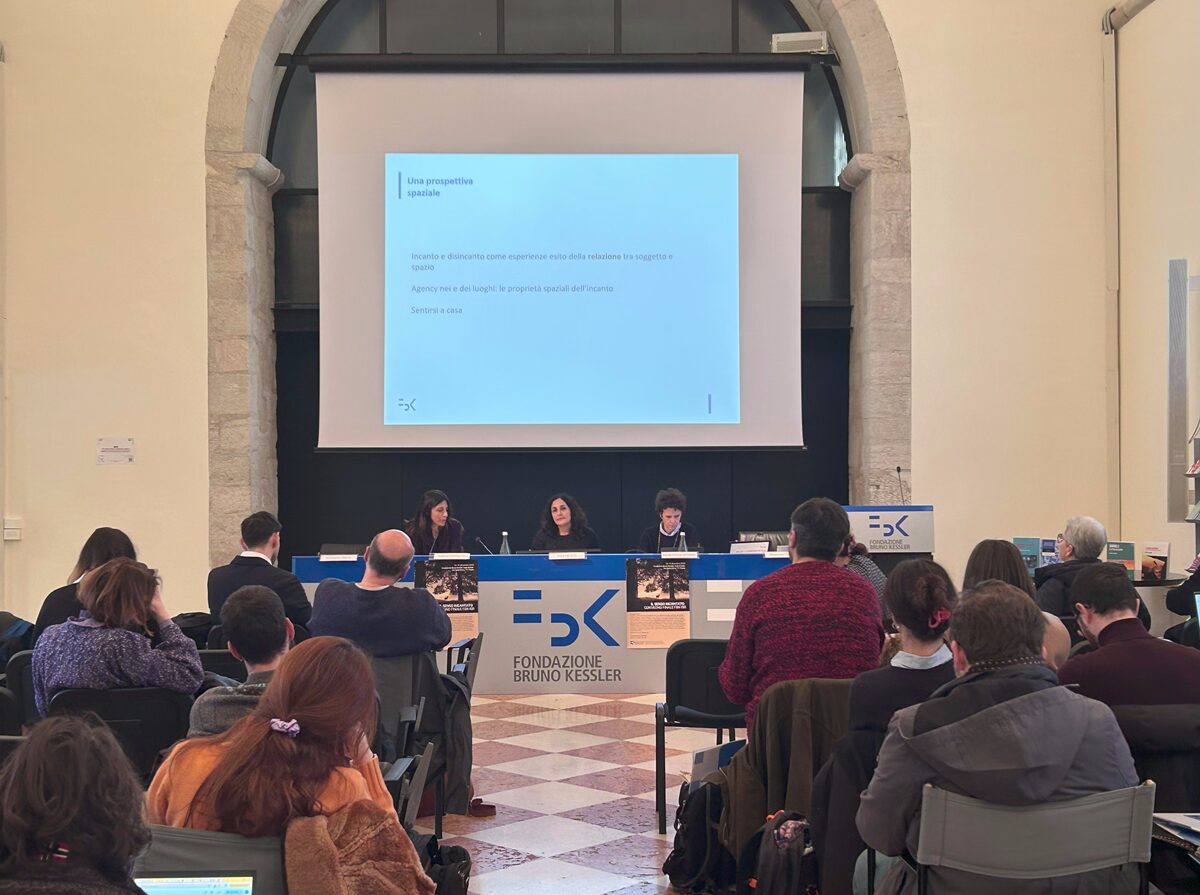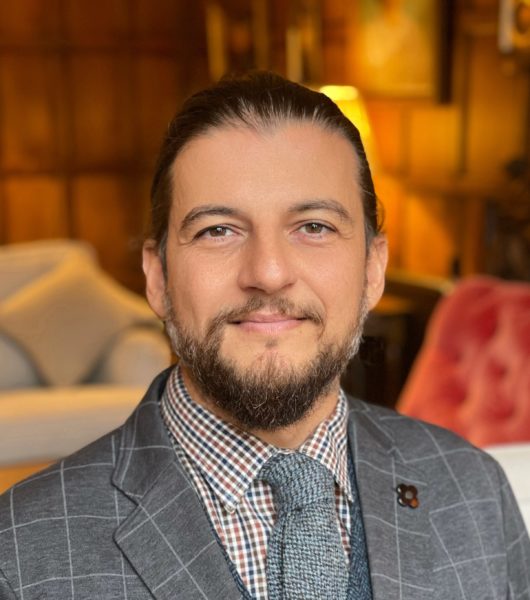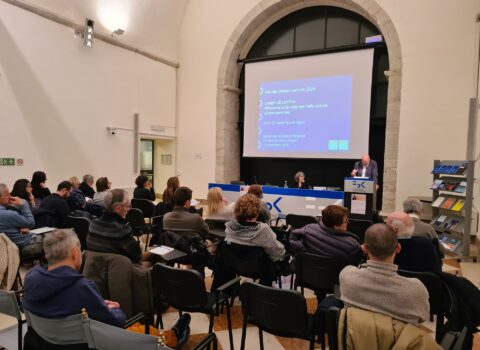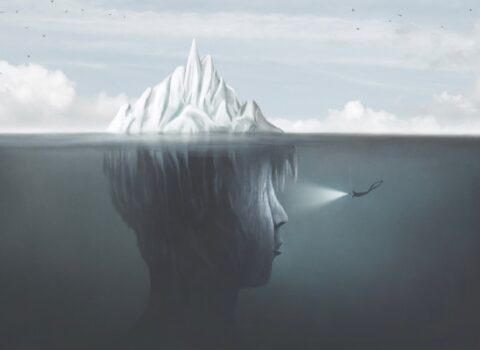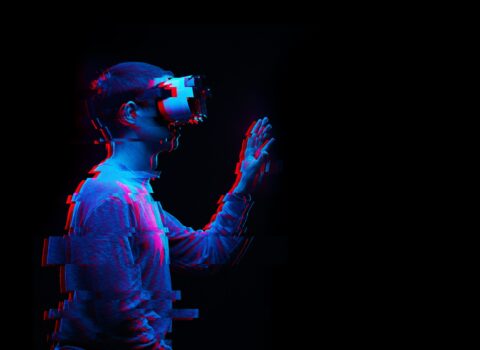
Il senso incantato | enchantment: Massimo Leone and the dialogue between spirituality and innovation
From rocky Imperviousness to aeriform Enchantment: 3 years of reflections and work at the Center for Religious Studies
Massimo Leone, director of Fondazione Bruno Kessler’s Center for Religious Studies, guides us to discover the conference “Il Senso Incantato”, the third chapter of an in-depth research journey that started in 2022. Between reflections inspired by nature in Trentino and the influence of modern technologies, Massimo Leone explores the theme of enchantment as a connection between awe, sacredness and innovation. In this interview, he recounts not only the evolution of the Center and its future prospects, but also his personal experience in enhancing exchange between the past and technology innovation.
What is this conference about?
This is the third conference we have organized at the Center for Religious Studies – after a first one in 2022 titled “Il senso impervio” at the end of a year of reflection on polarization and depolarization. A second conference in 2023, on the other hand, offered the theme of “immersion” after a year of reflection on embodiment and disembodiment. Finally, this year we explored the dialectical pair enchantment and disenchantment.
There is a progression, a common thread between these three conferences and the work of the past three years. In the beginning we focused on the solid, rocky, sometimes even difficult character of the texts and interpretations, the way they sometimes become radicalized and extreme: in this we were also inspired by the surrounding landscape, the rocky lands of Trentino.
The second year, instead, we devoted ourselves not to a solid theme but to a liquid theme, i.e. immersion, delving into the way in which new digital technologies allow us to play with the limits of our identity, exploring possible situations of loss as, in the virtual world, one can lose one’s boundaries and sense of one’s identity a bit.
In this progression – from the mountains of Trentino, with the rocky impervious sense, to the lakes of the immersed sense – we are now in this third year, which is an aeriform year, inspired by the atmospheres of Trentino and the very good air that one breathes in certain unspoiled areas of the province. In this progression – from the mountains of Trentino, with the rocky impervious sense, to the lakes of the immersed sense – we hit this third year, which is an aeriform year, inspired by the atmospheres of Trentino and the very good air we breathe in certain unspoiled areas of the province. It is an ancient theme, but also a very modern one as this sense, halfway between awe and reverence, is now also aroused by technology.
Enchantment is a term that is also used in quantum physics to refer to one of the so-called “flavors of quarks,” so even in the sciences there is a sense of wonder and enchantment and the idea that in order to fully grasp the physical-mathematical expression of reality, it is necessary to think about the elegance of this conception.
What are the characteristics of the Center for Religious Studies?
The Center is engaged both in tradition and in transformation, and 2025 will be devoted to a reflection on this dialectical pair: conservation-transformation. We are a center dedicated to religious studies, but also very rooted to the local area and the local religious identity; we are the custodians of the Foundation’s past, its origins and roots, and what binds the Foundation to the surrounding cultural environment. This is a treasure for us to preserve and conserve, to be connected to what is happening instead in Povo in the science laboratories on the hill, where there is a continuous transformation, a momentum toward the future, a constant acceleration.
We represent one of the poles of this dialectic, and we want to understand how to connect this ongoing revolution, particularly Artificial Intelligence in which the Foundation is absolutely a key player, to the set of values that we represent and that have been the characteristic values of Fondazione Bruno Kessler. In particular, we will focus on digital creation, which can have two meanings: on the one hand, what we are able to create with digital technologies, with generative artificial intelligence, with new technologies including quantum computation, with what is most advanced in the world of contemporary technology; on the other hand, there is the idea of recovering an ancient moral sense of what it is to create, to guard creation and how much new technologies and artificial intelligence can help us to preserve, also in terms of sustainability, what we have inherited from past generations.
What is your analysis of the first three years at the Center?
In these three years I have learned a lot, especially the work style here. Apart from the effectiveness of this Foundation, which is extraordinary, the community style of Fondazione Bruno Kessler is really its flagship, its spearhead. It is a place of excellence, of producing research in technology and in the humanities and religious studies. It is a very special way of building community, very much linked to the tradition of this area, of this province, of this city: there is the idea of projecting into the future, of taking advantage of the new opportunities that technology development offers, but of doing it together, namely always having this very strong idea of humanity linked to a very strong idea of comunitas, of communion and community.
I hope to continue to work very effectively for the Foundation, and to improve my knowledge of Trentino dialect, which is still quite basic. I would like to be able to interpret with even more energy and with even more courage, surrounded by this fantastic group of researchers and the staff of the Center for Religious Studies, the relationship between the ancient and the new, between the past present and the future, between the values that are deposited in our religious traditions and what we are able to do now with our technological creativity.
Representing, expressing, embodying this point of balance in my opinion is one of the missions of Fondazione Bruno Kessler’s Center for Religious Studies.
